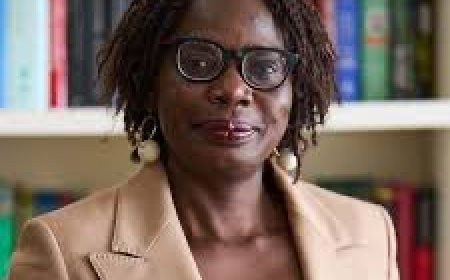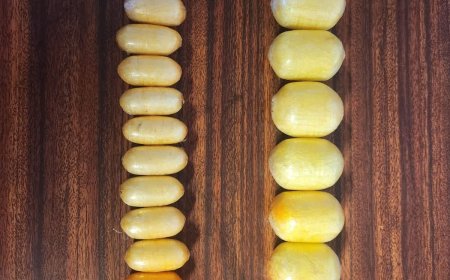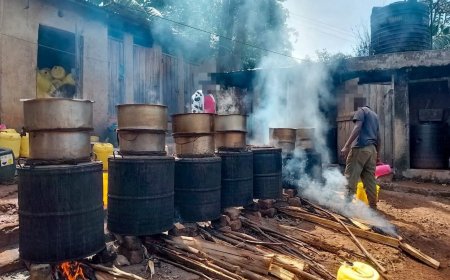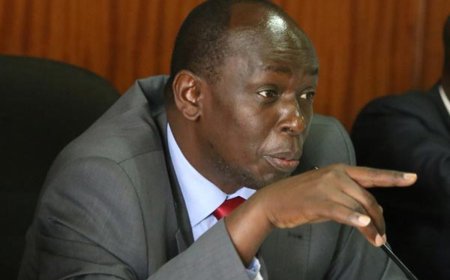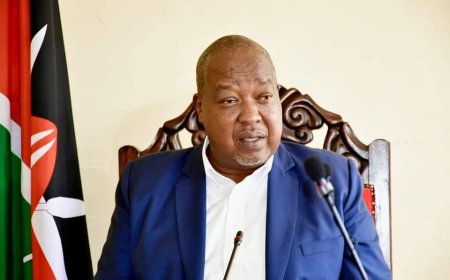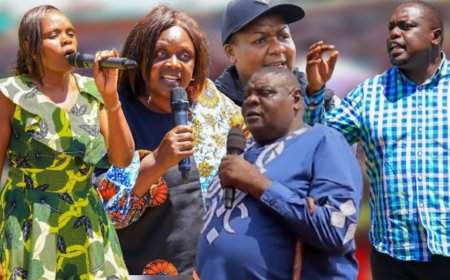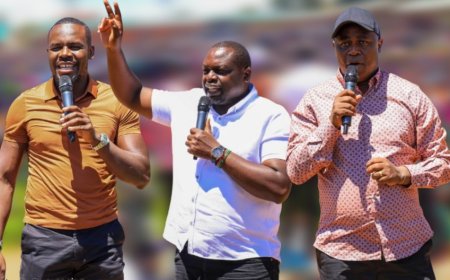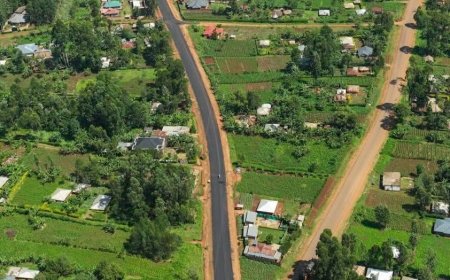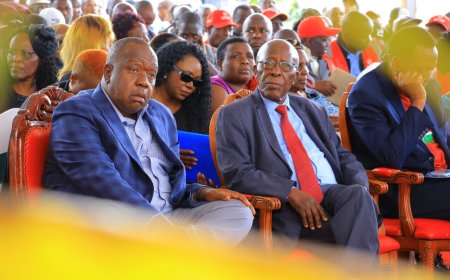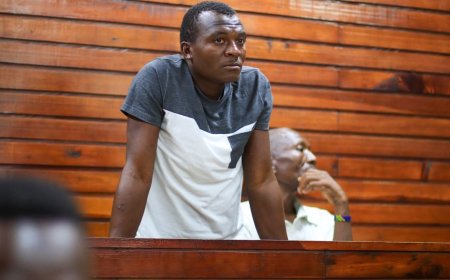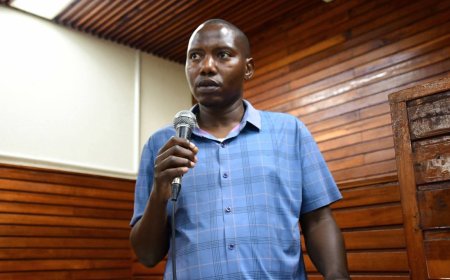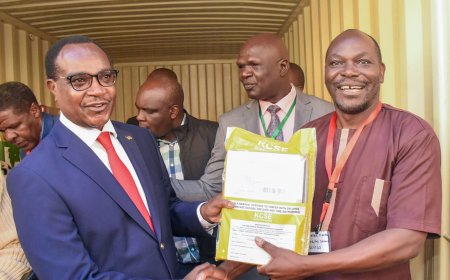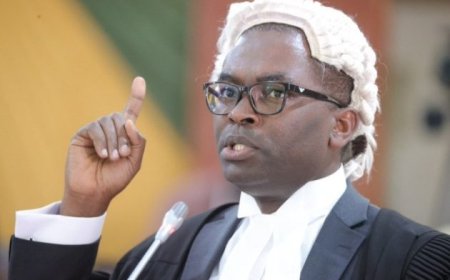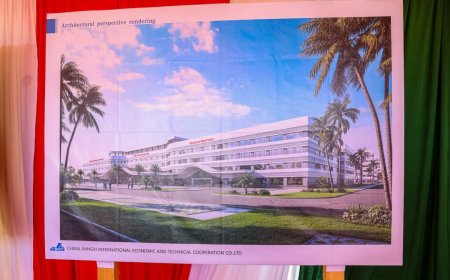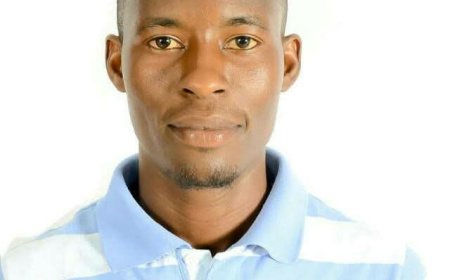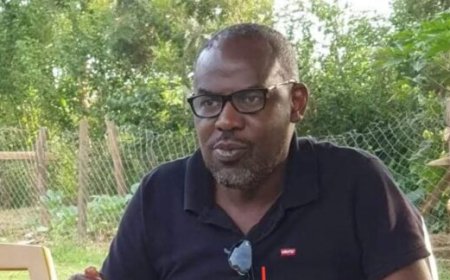Many of those rescued from Shakahola had severe malnutrition
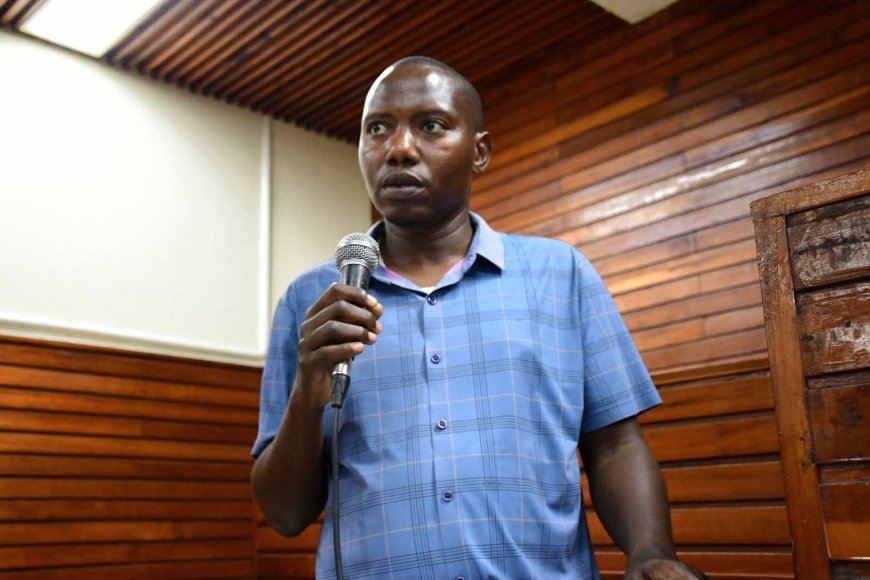
By Eric Abuga
A witness, Christine Omucheni Okanga told the court that when her husband started following Mackenzie’s teachings from Times TV, he withdrew their firstborn from school and prohibited the witness from attending the prenatal clinic as well as taking their young child to the hospital.
Anoter witness, Rodgers Mwibo Shibutise from Bungoma County also testified about how his mother burnt identity cards and mosquito nets.
She is also reported to have burnt the mobile SIM card, as they were made to understand that it was against God's will.
The witness and his sister gave their DNA sample for profiling, where her sister's DNA had a 99 percent match with the DNA of one of the female adult bodies believed to be that of his mother.
The hearing of the case in which 93 Shakahola massacre suspects, led by preacher Paul Nthege Mackenzie, face 283 counts of manslaughter resumed on Monday with a mental health expert presenting medical assessments of the accused.
A mental health and psychiatric clinical officer, Elias Fondo, told Chief Magistrate Hon. Alex Ithuku that they examined 65 survivors of the Shakahola tragedy, most of whom are faced with the Shakahola massacre crimes.
Mr. Fondo tabled the findings of the mental assembly titled “Psychological and Mental Health Analysis, Sajahanadi Rescue Centre Victims Report" before Hon. Ithuku.
The witness was among 25 Kenya Psychiatrists Association specialists who were tasked to evaluate the mental condition of the suspects and survivors.
He told the court that the team used established psychometric tools, including PHQ-2 to screen for depressive symptoms, GAD-2 to assess anxiety, suicidal minds, and additional checks for auditory hallucinations, among others.
Fondo said one survivor, Feminise Mwoma, presented symptoms of bipolar disorder and was found unfit to stand trial.
He said the rest were of normal mental health, although many were worried, anxious, stressed, and traumatized, largely due to the whereabouts of their children and the loss of property.
Several told the team they were at the rescue centre against their wishes.
The assessors recommended spiritual counselling, noting that some survivors were distressed after being compelled to eat despite their preference to fast.
Fondo said a number of survivors had dropped out of school, especially those in lower primary. Many were severely malnourished, with some registering a body mass as low as 13 and most at 18, levels classified as severe malnutrition.
The survivors, mainly women in their 20s and 30s, narrated that they had bought land in Shakahola for farming.
They said conflict later broke out, prompting them to flee into the forest, where they were arrested and taken to the rescue centre.
They denied knowing their religious leader, Paul Mackenzie, or being members of his church and dismissed claims of hostility. Several said they wanted to return to their villages and continue with their lives.
They admitted taking part in the hunger strike and complained that life at the rescue centre was dull due to the lack of television, radio, and newspapers.
Some expressed distrust of government interventions, including reluctance to undergo medical tests, though counsellors later convinced them to cooperate after explaining the purpose of the procedures.
Other witnesses who testified included a teacher, the 56th prosecution witness, who narrated how his husband sold most of his belongings and travelled to Shakahola.
The prosecution witness 59, Mr. Daniel Ingati gave a chilling testimony of how his father left home to an unknown place, later to realize that he was in Shakahola kwa Mackenzie.
The witness travelled to Shakahola in search of his father but didn't manage to get him.
Before the father travelled, he could not take children to school and discouraged people from wearing face masks. The father also closed a shop business he was running, as he considered business as earthly things.
What's Your Reaction?
 Like
0
Like
0
 Dislike
0
Dislike
0
 Love
0
Love
0
 Funny
0
Funny
0
 Angry
0
Angry
0
 Sad
0
Sad
0
 Wow
0
Wow
0

